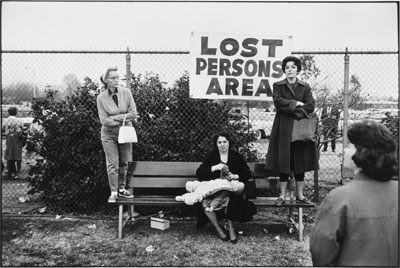Hone and Johnny

John Campbell has started a series of interviews with party leaders and their partners in their homes. The first two were with John and Bronagh Key and Hone Harawira and Hilda Halkyard-Harawira.
Both couples feed John a meal and talk about their lives and their political involvements – that’s about where the similarities end. Hone has photos on his wall from the Springbok tour protests. John famously can’t remember his stance on that issue, but he vividly remembers when he first wanted to be Prime Minister a few years earlier.
This is a good illustration of the main difference between Key’s and Harawira’s interviews, and indeed their overall political personas: Harawira’s interview is far more about politics and real issues, while Key’s is far more about superficiality, personality and content-free generalities like “making a difference” and “economic management” (Ha!).
Key does talk about “vulnerable people” and kids in poverty after Campbell observes the extreme wealth of their context. But for him these “vulnerable people” are an abstraction – they’re completely absent from his life.
Harawira’s concern for the marginalised is far more real. His biggest achievements are sacrifices he’s made for real live vulnerable people – be it Māori, the poor, South Africans suffering under apartheid, or his grumpy father-in-law. Mana’s policies are primarily motivated by real justice for those who most need it.
Moreover, Key’s claimed concern for kids growing up on welfare belies the fact that his government has kept benefit rates at 1991 levels. 1991, you may recall, was the year National deliberately set benefits to only cover 80% of minimum nutritional needs. This was an attempt to incentivise people into accepting the new low-wage jobs – or at least, those lucky enough to find jobs. They also encouraged a certain level of unemployment to drive wages down and again incentivise these poverty-wage jobs. This shows individual incentivisation may fill low-wage jobs, but it can’t cure unemployment: that requires broader socio-economic changes. These policies were and are sacrifices of the poor to support rich poverty-wage employers.
Two things have changed since then: One, poverty dropped slightly among working families (see p.47 here) since the last Labour government’s third-way policy, Working for Families. Key called WFF “communism by stealth” at the time, but he’s kept it, and praises it in the video for how it subsidises low wages. Two, National’s rhetoric is all anti-unemployment these days.
But three things still speak volumes: One, Key’s more willing to use taxpayer money to subsidise poverty-wage employers than make them pay living wages. Two, he sees no problem with WFF’s exclusion of beneficiary children from assistance, even though he notes they’re the majority of kids in poverty. Three, Key looks no further than individual solutions to the societal issue of unemployment.
Meanwhile, the real-life vulnerable people who miss out on the limited number of subsidised jobs offered by this “economic management” suffer now more than ever. Key thinks leftover Labour policies and welfare scapegoating is enough to help them. Harawira does not. I know which one I’d rather vote for.

2 comments